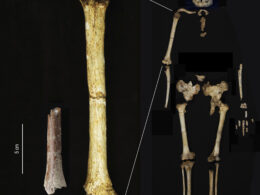‘Feel-Good Neurotransmitter’ Dopamine May Improve Memory Of Alzheimer’s Patients, Study Suggests
Topline
Researchers have found that increasing dopamine production in mice with Alzheimer’s disease improves their memory, a process they’re hopeful can be replicated in humans, though more testing for a better human alternative must be done.
Woman hugging her older mother.
Key Facts
A research team from Japan’s RIKEN Center for Brain Science tested the new treatment method, boosting the production of dopamine in the brains of mice with Alzheimer’s in the hopes of increasing levels of an enzyme called neprilysin.
Prior research has shown neprilysin can reduce the production of protein pieces called beta-amyloid, which causes the formation of plaque around brain neurons—one of the earliest indicators of Alzheimer’s disease—and the research team had previously found the neurotransmitter dopamine increases levels of neprilysin.
The scientists were able to continuously activate the neurons in the mice’s brains that produce dopamine, and after eight weeks the mice had significantly fewer plaques in their brains, according to a new study published Tuesday in Science Signaling.
Next, levodopa—a Parkinson’s drug used as a dopamine replacement—was given to some of the mice because, although the drug has severe side effects, boosting dopamine production in humans with a medication is a more feasible treatment method than genetically manipulating growth like the researchers did with the mice.
The medication was given for three months and led to an increase in neprilysin and a subsequent decrease in beta-amyloid, and the mice that were given this treatment performed better on memory tests than the placebo group that wasn’t treated with the drug.
What Side Effects Does Levodopa Have?
The researchers believe levodopa—also known as L-DOPA—is a good starting point to begin research on human treatment of boosting dopamine production in Alzheimer’s patients, but it may not be the best option in the long run because it has “serious side effects” in some Parkinson’s patients. Some of the most common side effects include dizziness, nausea, confusion, hallucination, psychosis, low blood pressure, agitation and delusion, according to StatPearls research. Long-term use can lead to complications like irreversible motor function changes, which affects roughly 50% of patients who take the drug for five to 10 years. Because of these side effects, “our next step is to investigate how dopamine regulates neprilysin in the brain, which should yield a new preventive approach that can be initiated at the preclinical stage of Alzheimer’s disease,” Dr. Watamura Naoto, first author of the study and researcher with the RIKEN Center for Brain Science, said in a statement.
What Is Dopamine?
Dopamine—also known as the “feel-good neurotransmitter”—is a hormone and a type of neurotransmitter in the brain that’s used by the nervous system to send messages to the nerves, according to the Cleveland Clinic. It plays an important role in the brain’s reward system because it’s released by the brain when a person does something that’s pleasurable. This rush of dopamine causes a person to seek more of that feeling, which can lead to behaviors like drug and alcohol addiction and overeating, according to the Cleveland Clinic. Research has shown the hormone may play a big part in dementia because low dopamine levels may indicate early signs of Alzheimer’s disease and other forms of dementia.
Big Number
6.7 million. That’s how many Americans aged 65 years or older had Alzheimer’s in 2023, according to the Alzheimer’s Association. Around one in nine people aged 65 or older have Alzheimer’s.
Tangent
Erectile dysfunction drugs like Viagra may also be key Alzheimer’s treatments, according to a Neurology study published in February. The researchers found participants who were prescribed erectile dysfunction drugs were 18% less likely to develop Alzheimer’s than their counterparts who weren’t. The types of drugs used in the study are called phosphodiesterase type-5 inhibitors, and the researchers believe PDE5Is may reduce Alzheimer’s risk because some forms of the drugs can improve brain health by increasing blood flow to the brain, and reducing the amount of energy neurons consumed in the brain.
Further Reading
Erectile Dysfunction Drugs Like Viagra May Reduce Alzheimer’s Risk, Study Finds (Forbes)









